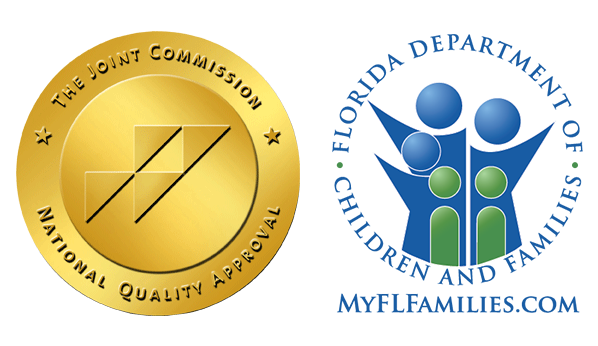Oxycodone is an opioid that reduces pain and produces a mild euphoric feeling. Oxycodone can be pretty helpful when used as prescribed and under the guidance of a licensed prescribing physician. However, because of its euphoric benefits, some people may abuse this substance, either for prolonged durations of self-medication outside of what their doctor has prescribed or just for pure recreational activities.
Whatever the cause, abusing oxycodone can have a number of harmful effects, including the emergence of an addiction. An oxycodone addiction, which is medically referred to as opioid use disorder, puts a person at risk for both short- and long-term harm.
An overdose of oxycodone can be lethal because it interacts with the parts of the central nervous system that regulate breathing and heart rate. Additionally, when someone gets dependent on oxycodone, trying to halt or drastically lessen their usage of this opioid can result in the emergence of a number of excruciating physical and mental side effects. The severe discomfort of withdrawal can force someone back into abusing oxycodone fast and make it more difficult to break this risky compulsive behavior in the future. At the rehabilitation center for drug addicts in Delray Beach, we understand the dangers of addiction, and we are here for you. In this blog post, we will discuss the dark side of OxyContin and Oxycodone addiction.
Risk Factors And Causes Of Oxycodone Addiction
At the rehabilitation center for drug addicts in Delray Beach, we know that there are many different contributors that can affect a person’s likelihood of abusing and developing an addiction to oxycodone or other opioids, including the following:
Hereditary: Opioid use disease has a significant hereditary component, according to the American Psychiatric Association (APA). People are more likely to battle opiate usage and addiction than non-users if their parents or siblings have. People who exhibit certain heritable personality traits, such as impulsivity and novelty seeking, may also be more likely than average to abuse opioids like oxycodone and develop a dependence on them.
Environmental: Many individuals who misuse and develop oxycodone addiction are initially exposed to opioids while receiving medical care. Accidents and other injuries that require medical attention and create a great deal of pain are thus among the environmental factors that can affect how oxycodone addiction develops.
Addiction To Oxycodone Symptoms And Signs
Several signs and symptoms, including but not limited to the following, can point to oxycodone usage or addiction in a person:
Behavioral Signs:
- Attempting to obtain oxycodone that has been prescribed for someone else and then stealing it.
- Visiting numerous doctors in an effort to obtain an oxycodone prescription on the black market.
- Giving up personal or professional responsibilities in order to obtain and use oxycodone.
- Taking oxycodone despite the fact that doing so is blatantly risky, such as when driving or drinking alcohol.
- Attempting to stop taking oxycodone but failing to do so.
- Attempting to steal or borrow cash in order to buy oxycodone.
- Lying or otherwise being dishonest about one’s whereabouts and activities.
Physiological Signs:
- Unsteady speech.
- Drowsiness.
- constricted eyes.
- a lack of cooperation.
- disturbed slumber.
- The appetite shifts.
- Psychomotor hyperactivity or slowness.
Cognitive Signs:
- inability to focus or pay attention.
- memory issues.
- faulty judgment.
- Mental and social symptoms.
- irrational mood swings.
- Anger and violent outbursts.
- Anxiety and paranoia.
Effects Of Oxycodone Overdose And Withdrawal
Oxycodone withdrawal effects when someone develops an oxycodone addiction and enters the rehabilitation center for drug addicts in Delray Beach. Trying to stop or drastically cut back on their oxycodone by yourself can cause the onset of a number of upsetting physical and mental symptoms, including the following:
- Anxiety and depression.
- Agitation.
- Excessive perspiration.
- Nausea.
- Vomiting.
- Diarrhea.
- Muscle and bone pain.
- Painful cramps.
- Elevated core temperature.
A person may be at grave risk if they take too much oxycodone for their body to safely digest. After taking oxycodone, anyone displaying any of the following symptoms should seek immediate medical help from a trained healthcare provider:
- Speech that is slurred.
- Extreme perplexity and confusion.
- Difficulty breathing.
- Skin that is clammy or cold.
- Bluish hues close to the fingertips and lips.
- Unconsciousness.
- Seizure.
Conclusion
You or your loved one understands that it’s difficult to stop abusing oxycodone. You or someone you know has probably developed an addiction to this prescription painkiller without even realizing it; it has the same potential for addiction as heroin. Oxycodone is one of the most effective drugs available when used to treat pain. However, if you willfully start abusing it to get high or misuse it after receiving a prescription, you probably now understand what it’s like to no longer be able to function without taking oxycodone every single day. It’s important to remember, though, that this potent analgesic is not required for your future. You have the power to decide to seek professional assistance, focus on your recovery, and lead a sober lifestyle that will promote a long and healthy life.
You are invited to visit this facility at the rehabilitation center for drug addicts in Delray Beach, a leading provider of rehab services in Delray Beach, FL, to make the necessary adjustments to reclaim your life from oxycodone addiction. If oxycodone now controls your every action, we provide what you need to take control of your life.












